- Home
- Paul Christopher
The House of Special Purpose Page 14
The House of Special Purpose Read online
Page 14
‘I want to see Mercador first,’ said Black.
‘Of course,’ said Morales.’
This time Black removed twenty dollars from his wallet, slipped it across Morales’s desk and waited. The man smiled. ‘Gracias, señor.’ He turned to the old-fashioned candlestick telephone on his desk and set up the interview with the prisoner, explaining the situation in machine-gun Spanish. A moment later he hooked the phone and smiled benignly across the desk, his hands clasped in front of him.
‘He has been removed to the penitentiary. They will have him ready for you.’ He kept on smiling. Jane and Black thanked him and then left his office. Morales waited for a few moments then picked up the telephone again and placed another call.
Returning to the hotel, Jane and Black discovered an enormous twenty-year-old Pierce Arrow out front. Under the dust and dirt it had once been blue but now it was grey brown with rust red showing in patches here and there. The canvas tonneau cover was torn in several places and the flat front windscreen had a large star-shaped crack on the passenger side that looked suspiciously as though it might have been created by a bullet passing through the glass. The leather upholstery, a dusty green, had been patched at least a score of times. Behind the wheel, dressed in what might have once passed as a chauffeur’s uniform, was a man who had to be no more than fifteen or sixteen. Standing proudly beside the car was the assistant manager, Durantes.
‘It was occurring to me,’ said Durantes, without preamble, ‘that if you are not knowing Mexico City well, perhaps a car with a driver would be of more use to you.’
‘Is he old enough to drive?’
Durantes spoke proudly. ‘He is my son, Cesar, and he has been driving an automobile since he is twelve years old.’
‘Well, at least he can see over the steering wheel,’ Black commented.
‘Your car, Señor Durantes?’ Jane asked.
‘My son and I share ownership. It was left behind some years ago by a guest who was forced to leave quickly.’ Durantes shook his head sadly. ‘Romantic entanglements, I think. At any rate, he could not pay his bill so the car was left in the parking lot for some years. It became an eyesore and Señor Meza, the general manager, asked me to remove it. I asked him if I could have the automobile and he had no objection so now Cesar drives and I keep the vehicle in working order.’
‘We’re going to need him for most of the day.’
‘Thirty-five pesos and whatever gratuity you see fit,’ Durantes answered promptly. He cleared his throat. ‘You of course would be responsible for the petrol, yes?’
‘Sure,’ said Jane. ‘Give him ten dollars, Morris. That’ll cover the tab for now.’ She stepped up to the rear door and Durantes hustled forward, opening it for her.
Cesar turned around in his seat and smiled. He looked a lot like his father except for the fact that he had no detectable facial hair whatsoever. Jane doubted that he was fifteen or anything close to it. ‘I am your cho-fair, madam. I will take you to anyplace you wish to go.’
‘Great,’ said Jane. ‘I’ve never been cho-faired anywhere before.’
Grinning, Black climbed into the front seat beside Cesar. He showed him the slip of paper Captain Morales had given him with the address of the penitentiary on it. ‘You know this place?’
‘Yes.’
Cesar put the car into gear seamlessly, let out the clutch, then went into a swinging turn that completely ignored the traffic moving in both directions. He spun the wheel and laid his hand to the horn, bullying his way into a wide and completely illegal U-turn, taking them east.
‘Was that entirely necessary?’ asked Black.
‘No, señor,’ answered Cesar. ‘But exciting, no?’
‘Yes,’ said Jane, sitting close to the door, clutching at the armrest.
‘You know it is a joke, I hope?’
‘What is?’ Black asked.
‘That they call the penitentiary the White Palace.’ He laughed. ‘It is not what those inside call it.’
‘Oh?’
‘No, señor. My father tells me that when it was built, almost fifty years ago now, it was pure white because the inmates kept it so. But there is a slaughterhouse on one side and an army shooting range on the other. Between and behind there is a sewer plant. The place is so dirty now they call it the Black Palace. It smells very bad as well.’
They drove for twenty minutes into the eastern outskirts of the city and eventually reached the prison. Cesar was right. It was almost the spitting image of Mountjoy Prison in Dublin, except much larger. A giant two-storey octagon with spokes like wings leading into a central hub. Jane could hear the dreadful screaming of the sheep and cows being slaughtered in the abattoir on the left of the prison and the crack of rifles firing from the army installation a hundred yards to the right. The air smelled of blood and death and fear, topped off with the wafting scent of human waste and animal shit.
Cesar pulled the large car into a space to one side of the main entrance. He pulled a lime out of his shirt pocket, rolled it in his hands for a few seconds then poked a small hole in it with a penknife he carried in his trousers. He squeezed juice into one hand and rubbed the juice under his nose.
‘I will stay in the car if you don’t mind. They say it stinks even worse inside.’ He leaned back in the driver’s seat, yawned and closed his eyes. Jane and Morris Black climbed out of the car and made their way to the door set within the tall iron front gates. A uniformed guard appeared, looked at the document from Morales for a moment then ushered them inside. They crossed a triangular courtyard, both of them well aware that they were being watched from the small barred windows all around them, and then they were inside the prison itself.
Cesar was right; the smell within was even worse.
They were met by another uniformed guard, who took them along a short passageway and then into a room divided in two by a heavy wire barrier. There was a table and chair on one side of the barrier and two chairs and a table on the other. There were no windows, only a narrow door on the far side of the barrier with another uniformed and armed guard standing beside it, his arms crossed over his chest. Sitting at the table was a muscular-looking man who appeared to be in his late twenties or early thirties with dark hair, a strong chin and long, almost pendulous ears. He wore heavy tortoiseshell spectacles and his eyes were dark and intelligent. The clothes he was wearing looked unwashed but expensive. Black reached into his jacket pocket and took out a small notepad and a pen he had brought with him from the hotel.
‘You call yourself Jacques Mornard and say you are the son of a Belgian diplomat?’ asked Black, speaking English.
‘That depends on who is asking,’ answered the man in the same language. There was a faint Spanish accent to his words.
‘My name is Morris Black,’ the detective answered truthfully. ‘I am here at the request of the Mexican government.’
‘The Mexicans hate the British.’
‘Not like me.’ Black smiled.
‘What makes you different?’
Black switched into Russian. ‘Because I can get you things, you young idiot,’ he said. ‘I can’t get you out of here at the moment but I assure you that I can make your life in this place much easier than it is at present.’ Mercador’s jaw dropped. Fleming had given Black an extensive file in Washington and the one-time Scotland Yard detective knew far more about the young assassin than Mercador thought.
‘Who are you?’ Mercador hissed. His Russian was as good as Black’s and perhaps learned at an earlier age.
‘A friend,’ said Black.
‘The woman?’
‘Also a friend.’ Under the table Black moved his foot gently against Jane’s shoe. She smiled at Mercador. Mercador smiled back a little nervously.
‘How do I know this is true?’
‘Why would I lie?’ He continued to smile. ‘We went to the same schools in Moscow, my friend. I owe my allegiance to the people at Dzerzhinskiy Square, not the king of England or that plump little turtled
ove he married.’
‘Maybe you just want to get information from me. To find out things.’
‘Mornard, Frank Jacson the Canadian, Vandendreshd – I know all your names. Also the name of Leonid Eitington, your case officer, who is also the longtime lover of your mother, Caridad Mercador. You think I would know that if I was not of the Brotherhood… Ramon?’ The Brotherhood being common slang for the NKVD. Black smiled and Mercador’s eyes widened behind his thick glasses. ‘That is your real name, isn’t it? Ramon Mercador?’ said Black calmly.
‘I have told no one that!’ Mercador whispered. ‘Not even that idiot psychiatrist they made me speak to and do silly puzzles for.’
‘Dr Cuaron,’ said Black with a nod, still speaking Russian. ‘A Republican fool.’ With a large enough bribe Stephenson’s people had managed to get a copy of Cuaron’s analysis of Mercador and the doctor was by no means a fool. Cuaron said that it was likely that other than as an information conduit to the members of the first team sent in to kill Trotsky, Mercador was simply trying to guarantee himself a place in history. It was a question of ego. Taken away from his father at an early age, a rootless traveller with his mother, Mercador had been a blank slate, a perfect tablet for the NKVD to write on. It was also clear to the doctor that Mercador, a trained mountaineer, had been in a state of utter terror when he attacked Trotsky, since he used the wrong end of the piolet, or climber’s ice axe, in his bungled attempt. Had he used the pick rather than the axe end Trotsky would have died instantly and Mercador could have escaped. More importantly to Black, it would have given the young man the time he needed to get the film.
All of this, Black knew, was the essence of a successful interrogation – to know more than the subject expected you to know, and to reveal your knowledge at the appropriate moment, making it seem as though you knew far more than you really did. It was a classic Gestapo tactic and almost always worked. It was simply a matter of taking your subject where you wanted him to go and making him think it was his idea all the time.
‘Well,’ said Black, smiling. ‘You were caught but you will be given a hero’s welcome back in the Rodina.’ He purposely used the word for Motherland rather than simply Russia.
‘I am no hero,’ Mercador answered but it was clear that he appreciated the comment. ‘A real hero would have escaped or killed himself before being captured.’
‘From what I hear you had no time at all and no weapon for that matter,’ Black added. He grinned as he said, ‘Since it was buried in the back of Comrade Trotsky’s head.’
‘I had a knife in my jacket and an automatic pistol in my boot.’ Mercador shrugged. ‘But you are right. There was very little time before the guards came.’
‘Certainly not enough time to find the film.’
Mercador looked up at Black sharply, his eyes suddenly filled with suspicion. ‘You know about the film?’
It was Black’s turn to shrug. ‘Of course. That’s what it was really all about. The killing of Comrade Trotsky was only necessary because of it. Or did Comrade Eitington and your mother tell you the assassination was an end in itself?’ Black paused for a long moment. ‘Or can’t you remember?’
Dr Cuaron had made one thing abundantly clear in his report. Whatever faults Mercador had did not lie with his memory. He spoke several languages perfectly, a single reading of a note or a letter could be read back hours later without hesitation. He had total recall, a photographic memory.
Mercador’s chest puffed out with self-importance. ‘I knew what I was there to do. I would have found it.’
‘You didn’t know where it was hidden?’
‘No. The old man only mentioned it once. He made a joke and said that it was somehow fitting that his own life was protected by Christ’s resurrection.’ He shook his head. ‘We were having a picnic in the gardens with several other people from the villa. He was drunk. I never understood what he meant and I didn’t want to show too much interest.’ He shook his head. ‘I’m sure it was in his study somewhere. He would have kept it close by, I’m sure.’
‘He never mentioned it again?’
‘Never a single reference. No.’
‘Oh, well,’ said Black. ‘I suppose it doesn’t really matter.’ He slipped back into English, glancing at Jane as he did so. ‘Now then, let us get down to the matter of what you think you might need in the way of… creature comforts during your stay in this so-called palace.’
They spent the next ten minutes or so discussing cigarettes, liquor, women, money and the various methods of passing messages back and forth, all of them made up by Black on the spot. When Mercador finally had a real visitor with his best interests in mind the young man was going to be grievously surprised.
Jane was silent all the way back to the gates. Once outside they both lit cigarettes and walked towards the car. ‘Well, that was an education,’ she said. ‘I barely understood a word.’
‘A confused young man,’ said Black. ‘What we used to call a bit of a booby back when I was at school.’
‘Your basic pawn?’ asked Jane.
‘Something like that.’ They reached the car and Black opened the door.
‘Anything at all worthwhile?’
‘A clue perhaps,’ he said quietly.
‘All that for one clue?’
‘One clue’s better than none, don’t you think?’
They climbed into the car. Cesar woke up from his catnap and let out a jaw-cracking yawn. Jane shook her head; how he could sleep in surroundings like this was beyond her.
‘Onward, Cesar,’ said Black. ‘Next stop – Coyoacán, if you please.’
‘Not a problem, señor.’ The young man smiled, started the engine and a few seconds later they were heading away from the prison and back into Mexico City.
* * *
Half an hour later they reached the quiet suburban village.
‘You know where the house is?’ Black asked Cesar.
‘Of course. Everyone here does. It is on Avenida Viena.’
‘Can you find it?’
‘Certainly, señor. The main entrance is on Morelos Street.’
‘Then take us there.’
’Si, señor.’
Five minutes later, the boy had navigated his way through the twisting streets and they found themselves at the red door in the high wall around the Trotsky house. Morris Black rapped loudly on the door but after a long minute there was no response at all. Jane now had her Leica slung around her neck and the Minox ready in the breast pocket of her blouse.
‘Hello?’ Black called. ‘We have a pass from Captain Morales from the Palacio Nationale!’ Still nothing.
‘Hear that?’ Jane asked.
‘What?’
‘Listen.’
From behind the door came a buzzing sound, fluctuating, rising and falling in intensity.
‘What is it?’
‘Flies, I think.’ Jane said. ‘Maybe we should just leave well enough alone. Last time I opened a door like this, it blew up in my face.’ Unconsciously she fingered the long scar at her temple, hidden by her hair.
‘I’m going inside.’
‘I don’t suppose you brought a gun or anything?’
‘I didn’t think it was necessary.’
‘Let’s hope you’re right.’
Black tried the latch on the large metal-clad door and was surprised when it opened under the pressure of his thumb. ‘It’s open.’
‘Horses and barn doors,’ Jane commented.
‘Pardon?’
‘Trotsky’s dead. Nothing left to guard but old mistakes.’
‘Aren’t we looking for the film? Or at least the key the old man was wearing before the first attack?’
Jane shrugged. ‘Then open the door.’
Black did so and the two of them slipped through the narrow opening.
‘Oh, shit,’ Jane said. Directly in front of them, the back of his head propped at an impossible angle against the wall of the guardhouse, was a fat man in uniform with
pitted skin and nicotine-stained teeth. Dozens of flies were congregated on his tongue, moving in and out of his mouth like coal miners hard at work, and around the hole in the bridge of his nose. The man’s gun was still in its holster. A dozen feet away to the right was a second body, this one wearing uniform trousers and a grayish undershirt. He had been shot in the left eye at close range and he had emptied his bowels and bladder when he died. His weapon was also in his holster. In his hand was a broken bottle of Noche Buena beer.
‘Caught them by surprise,’ Black commented.
‘Surprise is one word for it,’ said Jane. ‘Who?’
‘Someone who was looking for the same thing we are. Russians, maybe even the Germans if they know the film exists.’ He looked down at the dead bodies in front of him. ‘I’m not sure about any of this any more.’
‘What about the guns?’
Black leaned down, popped open the shoulder holster of the guard nearest him and pulled out an American Eagle 1911 .45 automatic. He dropped the heavy gun into the pocket of his jacket
‘Now what?’
‘We search the house.’
‘What’s the point? Someone’s been here before us. Whatever was here is gone.’
‘No,’ Black said. ‘There’s something here.’
Over the century’s span of the London Metropolitan Police, usually referred to as Scotland Yard, the Criminal Investigation Division had employed literally hundreds of detectives, almost all of them at least competent, some of them extremely good and a very few exceptional. Black was considered to be one of the exceptional ones. Most of his colleagues put it down to what was quietly referred to as ‘the Sight’ around the Yard, an almost supernatural ability to see beyond the evidence to something else, a point in time where a theoretical leap beyond logic could bring you closer to a crime’s resolution than a hundred interviews. Anyone who believed in such things at the Yard knew that Morris Black had the Sight in greater abundance than any detective, past or present.

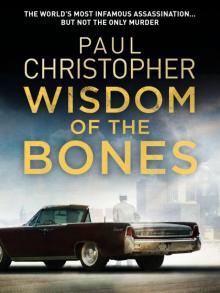 Wisdom of the Bones
Wisdom of the Bones The House of Special Purpose
The House of Special Purpose The Second Assassin
The Second Assassin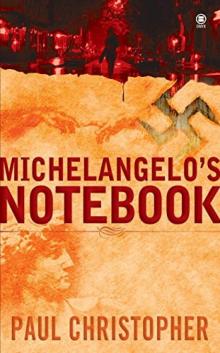 Michelangelo's Notebook
Michelangelo's Notebook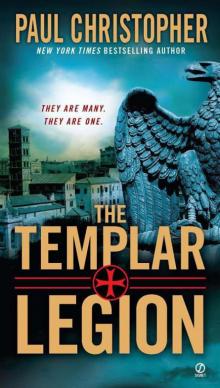 Templar Legion
Templar Legion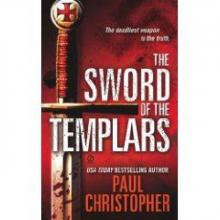 The Sword of the Templars t-1
The Sword of the Templars t-1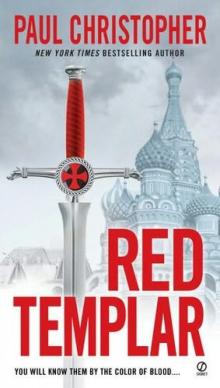 Red Templar
Red Templar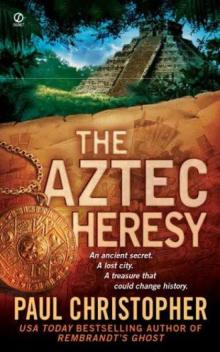 The Aztec Heresy
The Aztec Heresy The Templar Legion
The Templar Legion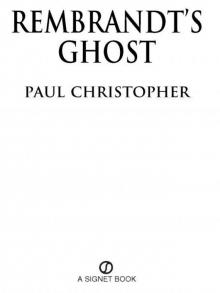 Rembrandt's Ghost
Rembrandt's Ghost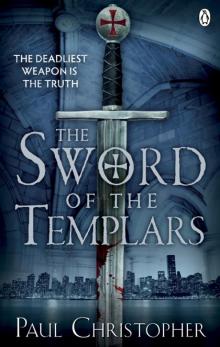 Sword of the Templars
Sword of the Templars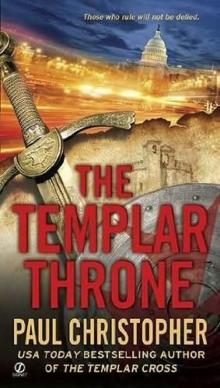 The Templar throne t-3
The Templar throne t-3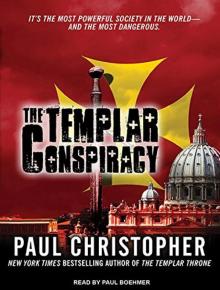 The Templar Conspiracy
The Templar Conspiracy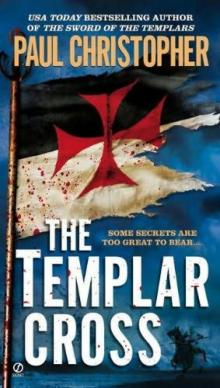 The Templar Cross t-2
The Templar Cross t-2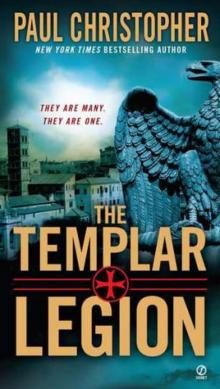 The Templar Legion t-5
The Templar Legion t-5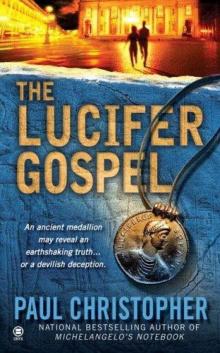 The Lucifer Gospel
The Lucifer Gospel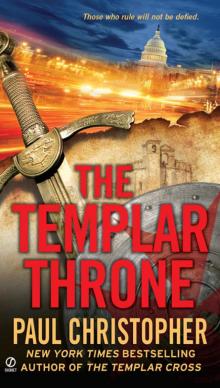 Templar Throne
Templar Throne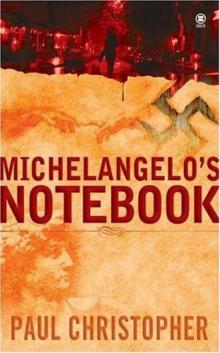 Michelangelo_s Notebook fr-1
Michelangelo_s Notebook fr-1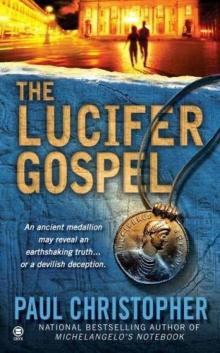 The Lucifer Gospel fr-2
The Lucifer Gospel fr-2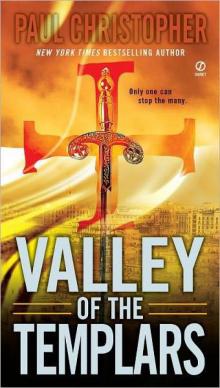 Valley of the Templars ts-7
Valley of the Templars ts-7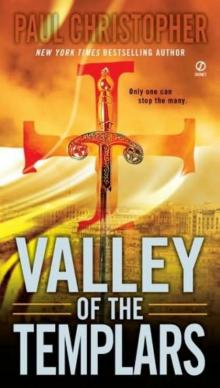 Valley of the Templars
Valley of the Templars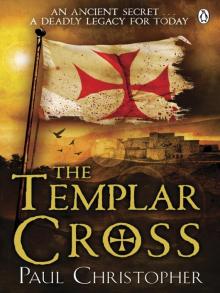 Templar Cross
Templar Cross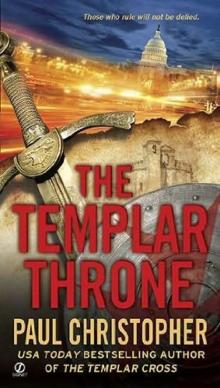 The Templar Throne
The Templar Throne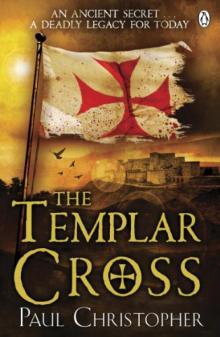 The Templar Cross
The Templar Cross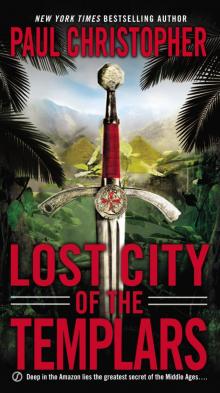 Lost City of the Templars
Lost City of the Templars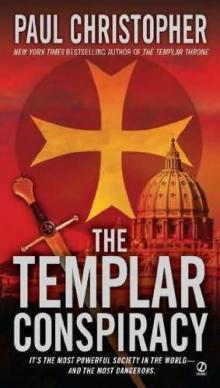 The Templar conspiracy t-4
The Templar conspiracy t-4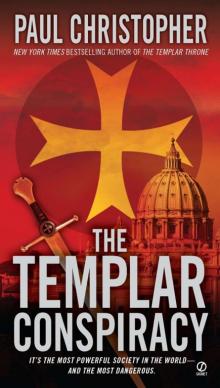 Templar Conspiracy
Templar Conspiracy